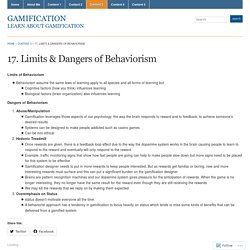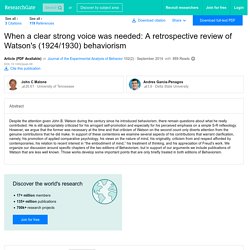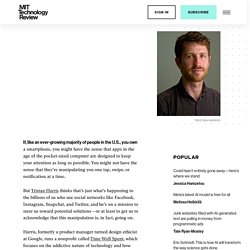

17. Limits & Dangers of Behaviorism « Gamification. Limits of Behaviorism Behaviorism assume the same laws of learning apply to all species and all forms of learning butCognitive factors (how you think) influences learningBiological factors (brain organization) also influences learning Dangers of Behaviorism Abuse/ManipulationGamification leverages those aspects of our psychology, the way the brain responds to reward and to feedback, to achieve someone’s desired resultsSystems can be designed to make people addicted such as casino gamesCan be non ethicalHedonic TreadmillOnce rewards are given, there is a feedback loop effect due to the way the dopamine system works in the brain causing people to learn to respond to the reward and eventually will only respond to the rewardExample: traffic monitoring signs that show how fast people are going can help to make people slow down but more signs need to be placed for this system to be effectiveGamification designer needs to put in more rewards to keep people interested.

AN ETHICAL PERSPECTIVE ON OPERANT CONDITIONING. Embed Size (px) Text of AN ETHICAL PERSPECTIVE ON OPERANT CONDITIONING.

Problems of Operant Conditioning: Intro to Psychology. The Influence of Social Media on Addictive Behaviors in College Students. Dopamine, Smartphones & You: A battle for your time. By Trevor Haynesfigures by Rebecca Clements “I feel tremendous guilt,” admitted Chamath Palihapitiya, former Vice President of User Growth at Facebook, to an audience of Stanford students.

He was responding to a question about his involvement in exploiting consumer behavior. “The short-term, dopamine-driven feedback loops that we have created are destroying how society works,” he explained. Technology - The scientists who make apps addictive. In 1930, a psychologist at Harvard University called B.F.

Skinner made a box and placed a hungry rat inside it. The box had a lever on one side. As the rat moved about it would accidentally knock the lever and, when it did so, a food pellet would drop into the box. After a rat had been put in the box a few times, it learned to go straight to the lever and press it: the reward reinforced the behaviour. Has dopamine got us hooked on tech?
In an unprecedented attack of candour, Sean Parker, the 38-year-old founding president of Facebook, recently admitted that the social network was founded not to unite us, but to distract us.

“The thought process was: ‘How do we consume as much of your time and conscious attention as possible?’” He said at an event in Philadelphia in November. To achieve this goal, Facebook’s architects exploited a “vulnerability in human psychology”, explained Parker, who resigned from the company in 2005. Whenever someone likes or comments on a post or photograph, he said, “we… give you a little dopamine hit”. Facebook is an empire of empires, then, built upon a molecule. Dopamine, discovered in 1957, is one of 20 or so major neurotransmitters, a fleet of chemicals that, like bicycle couriers weaving through traffic, carry urgent messages between neurons, nerves and other cells in the body.
Fun, perhaps, but as with Kardashian, dopamine’s press is not entirely favourable. Ethical Issues in School-Based Research - 174701610900500304. (11) (PDF) When a clear strong voice was needed: A retrospective review of Watson's (1924/1930) behaviorism. Dunlap, K. (1934).

Civilized life: The principles and applications. School Shocks Students With Disabilities. The FDA Is Moving To Ban The Practice : NPR. US bans shock ‘treatment’ on children with special needs at Boston-area school. The US government has banned an electric shock machine that is used to zap children and young adults with special needs in a school outside Boston – the only institution in the world known to practice the controversial punishment “treatment”.

The US Food and Drug Administration (FDA) has taken the extremely rare move of imposing a total ban on the production and use of the electric shock machines, known as electrical stimulation devices. It said the ban – only the third such comprehensive prohibition of a medical device in FDA history – was necessary to “protect public health”. Ethical Implications of Behavior Modification: Historical and Cur. Ethics for Behaviorists. Smartphones Are Weapons of Mass Manipulation. Harris argues that because tech companies’ business models largely depend upon advertising revenue, it’s not really in their best interest to push us toward, say, getting off the social network du jour and going outside to hang out with friends.

He’s not saying Facebook (or any of its peers, for that matter) is bad, or that we should stop using our smartphones. But after spending years inside the tech industry—he joined Google in 2011 when it bought the startup he cofounded, a search-within-the-Web-page company called Apture—he is saying they are the most powerful social persuasion machines ever built, and he’s concerned about how we’re using them. Or, more to the point, how they’re using us.
It’s an increasingly valid concern. Beneficience and Behavioral Control. AN ETHICAL PERSPECTIVE ON OPERANT CONDITIONING - pdf. Human Experimentation Senate Committee on Labor and Public Welfare. Learned helplessness at fifty: Insights from neuroscience. - PubMed - NCBI.